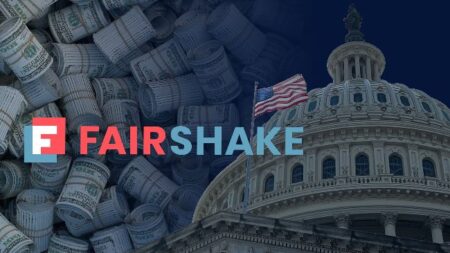Crypto regulatory initiatives have stepped up in the U.S. in recent months, JPMorgan said.
The stablecoin bill is most likely to be approved before the presidential election, and is a threat to tether’s dominance if passed, according to the bank.
Issuance of a central bank digital currency is less likely after the House passed a bill last month banning the Federal Reserve from doing so, the bank said.
U.S. crypto regulations seem to be moving in a direction that opposes the launch of a central bank digital currency, is against local banks embracing crypto and is averse to non-compliant stablecoins, JPMorgan (JPM) said in a research report.
The bank notes that regulatory initiatives have stepped up in the U.S. in recent months, raising questions about the direction of crypto regulation ahead of the presidential election later this year.
Emerging regulatory initiatives appear to be “against a Fed coin, against U.S. banks engaging with crypto, against non-compliant stablecoins such as tether (USDT) and against a blanket classification of all tokens outside bitcoin (BTC) and ether (ETH) as securities,” analysts led by Nikolaos Panigirtzoglou wrote in a Wednesday report.
The Clarity for Payment Stablecoins Act has a higher chance of being approved before the election in November than three other initiatives, the report said. If passed, the bill will bolster U.S. compliant stablecoins, but would threaten the dominance of non-compliant stablecoins such as tether.
A stablecoin is a type of cryptocurrency that’s usually pegged to the U.S. dollar, though some other currencies and assets, such as gold, are also used.
The Financial Innovation and Technology for the 21st Century Act (FIT21), which was passed by the House of Representatives last month, still needs to be approved by the Senate and, ultimately, the president. That is unlikely to happen before the election, the bank said.
JPMorgan notes that Congress passed a resolution overturning the SAB 121 accounting rule, which made it harder for banks to custody crypto assets, but the resolution was vetoed by the president Joe Biden.
The Central Bank Digital Currency (CBDC) Anti-Surveillance State Act is an attempt to block a U.S. CBDC and prevents Federal Reserve banks from offering certain products to consumers and from using a central bank digital currency for monetary policy, the report added. The House passed the bill banning the Federal Reserve from issuing a CBDC last month, however, its prospects in the Senate are unclear.
Read more: Robinhood Wells Notice Shouldn’t Deter Eventual Approval of an Ether Spot ETF: JPMorgan
Read the full article here









